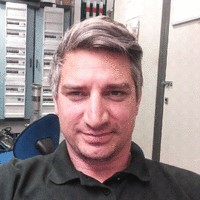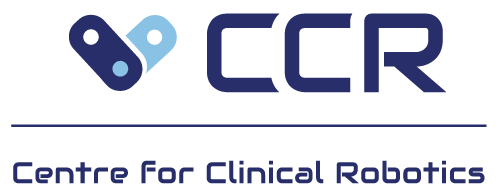HanDiRob (2021-2022)
Hand hygiene has received a renewed focus with the Covid-19 pandemic, but it is always crucial for hygiene in a hospital that everyone remembers to wash their hands. To make hand sanitiser easy and readily available and to encourage use, the project tested a sanitiser robot that could move to where it was needed, charge itself and alert when it needed to be refilled.
PROJECT PERIOD
Start: 12 April 2021
End: 2022
The robot consisted of two modules: a mobile base on wheels and a sanitiser stand that the base could take off and on. On the stand there was an interactive screen which could interact in various ways with the user. There was also a camera that helped the robot navigate, but it did not have facial recognition software or any kind of storage.
AIM
In 2022, the prototypes were tested at OUH and Universitätsklinikum Schleswig-Holstein (University Hospital in Kiel and Lübeck).
The testing phase focused on:
- how the base module navigated and functioned in practice.
- how the base functioned in connection with the stands.
- how the robot interacted with humans and offered them hand sanitiser. Some of these people were asked about their user experience.
It was intended that multiple robots should be present in the same area and interact with each other. The goal was that the robots could help prevent infectious diseases in a hospital in an easy and smooth way.
Read more about HanDiRob at the project's own website..
RESULTS
HanDiRob has been tested several times at OUH, both at the entrance and in the hall.
Users reported that using HanDiRob was a good and pleasant experience, and although the project has shown that there is still development to be done on the robot, there are significant advantages to HanDiRob.
The research project's results showed that the robot can increase the proportion of people in hospitals who sanitise their hands from approximately 13% to 50% when the robot is both moving and talking. When it just moves but doesn't speak, the proportion rises to around 39%.
Read more about HanDiRob at the project's own website.
PARTNERS
The project was a collaboration between the University of Southern Denmark, Universität zu Lübeck, Fachhochschule Kiel, Odense University Hospital and Abena.
FUNDING
The project was financed by the the European Commission's Interreg Deutschland-Danmark programme.

Oskar Palinko
Project Coordinator
University of Southern Denmark, Maersk Mc-Kinney Moller Institute
spa@mmmi.sdu.dk

Esben Hansen
Technical Manager, Team Leader
Centre for Clinical Robotics (CCR). Odense University Hospital, Facilities Management
(+45) 5146 6767 eha@rsyd.dk

